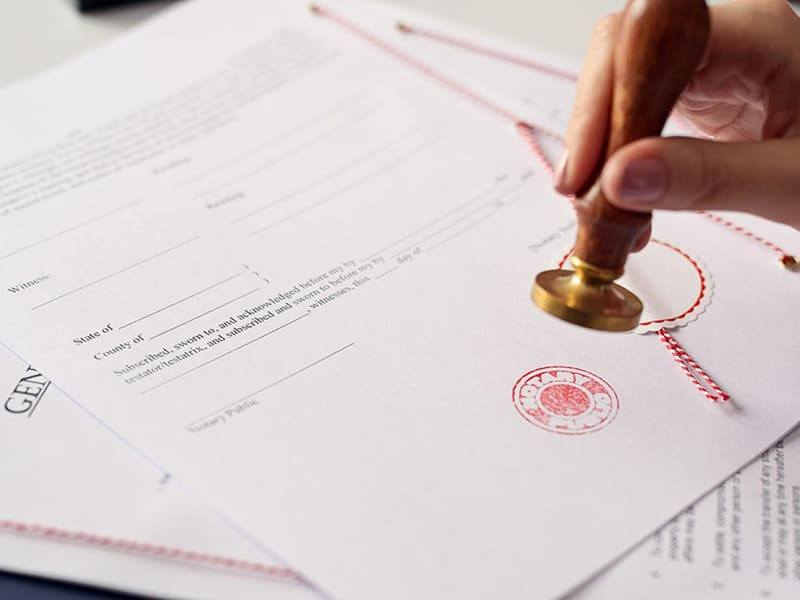The different types of officially certified translations available can often confuse people. Whether you work on behalf of a business and need some corporate documents translated and certified or you need the documents for your personal use, there is a good chance that when you approach a translation agency or a professional linguist, you’ll be presented with a wide range of official translation certificates available.
Consequently, before going ahead with the translation, it’s good to fully understand what the different types of certifications actuallyare and the situations when each of the different types might be required; and so in order to help in making the right choice,that’s exactly what we are going to talk about in this article.
Although sometimes the agency will be able to advise on the specific type of certification your documents require based on your particular circumstances and the reasons behind the translation (e.g. To be used in court, applying for a visa etc.), in most cases you’ll need to ask for a specific type of certified translation in order to meet legal requirements.
Below, we are taking a closer look at the various types of certified translations available and legally recognised in the United Kingdom and explain how to go about acquiring them and finding the best possible provider whether you need them for corporate or private use.
When may I need a certified translation?
You may be required to provide a certified translation of your documents in variety of situations. Usually however, this applies to documents issued abroad, which need to be presented to one of the official institutions in the United Kingdom, such as Universities, Courts of Law or the Home Office or business documents in English which will be presented to foreign business partners/clients.
By providing officially certified documents, you give the institution a guarantee that the translation is accurate and true to its original. This is the reason why only registered linguists and translation agencies are able to provide this service, and you won’t be able to simply translate the documents yourself, even if you speak the language fluently.
There is a number of personal documents which may need to be officially translated and authorized. Some of the most popular include marriage, death or birth certificates as well as international degree papers, which need to be presented to educational institutions.
Business documents, on the other hand, are also equally common when it comes to certified translations. Whether it’s cover or recommendation letters, business material which needs to be presented to international partners or T&Cs and contracts, companies too require authorized translations frequently.

Standard certified translation
A standard certified translationis, in most cases,perfectly adequate. It is widely accepted by legal, educational and business institutions in the UK and majority of other countries. In order to acquire a standard certification for your documents, you will need to approach an officially registered translation agency or a linguist. Being officially registered gives them the legal power to translate and certify your document, making it lawfully valid.
In order for your translated material to be certified however, certain criteria must be met. As stated on the official government website (see here), the translation must be accompanied by a signed cover letter, which states:
- that it’s a ‘true and accurate translation of the original document’
- the date of the translation
- the full name and contact details of the translator or a representative of the translation company
Unfortunately, there isn’t however a standard template for such letter and each linguist/agency may be using their very own version, which can make the entire process slightly more puzzling than it perhaps should be. Nonetheless, it is widely accepted that the cover letter should similar to the below template:
“I, …………, anofficially registered member of the …………, competent to translate from ……. into ……, declare that the attached translation executed by me is, to the best of my professional knowledge, a true and faithful translation of the original document.”
The cover letter might differ slightly if you work directly with a translation agency, nonetheless the general concept remains similar to the above example.
Notarized Translation
Although the standard certified translation is usually perfectly sufficient, in some cases, you might be asked to provide a notarized translation of your document. The difference between a notarized translation and a standard certificate is that a notarized translation must be signed and stamped in front of a legal professional – e.g. a lawyer or a solicitor.

Generally speaking, a professional translation agency will be able to provide this type of certification, although the price and turnaround time might be slightly higher than in the case of a standard certification.
Sworn Translations
Sworn translators are a concept, which is not applicable in the United Kingdom, however, it is recognised in other European countries such as France, Poland or Spain.
A translator usually applies to be vetted by a court. This process allows them to become a ‘Sworn’ translator and as a result provide certified translations which would then be legally recognised in their home country.
How to find a reliable provider?
Finding a reliable and professional provider of certified translation services isn’t a straightforward process, which gets even more complicated if you decide to work with freelance linguists instead of a registered agency.
One of the ways to ensure that your chosen provider is able to certify your translated documents is to check that they are officially registered with a legal body. These differ depending on whether you work with an agency or a freelancer, nonetheless, the two most popular and widely recognised organisations for language translation providers (LTPs) are:
- Chartered Institute for Linguists (Freelance Translators)
- Association of Translation Companies (Agencies)
To check whether the person or company is registered, you can simply ask for their registry number and check directly with the association. Typically, this information would also be displayed on the agency’s/freelancer’s website.
As you can see, acquiring a certified translation isn’t as straightforward as many people might think initially. From finding out which particular type of certification you need based on your particular documents and circumstances to choosing whether you wish to work with an agency or a freelance translator, to then finally finding an appropriate and reliable provider.















